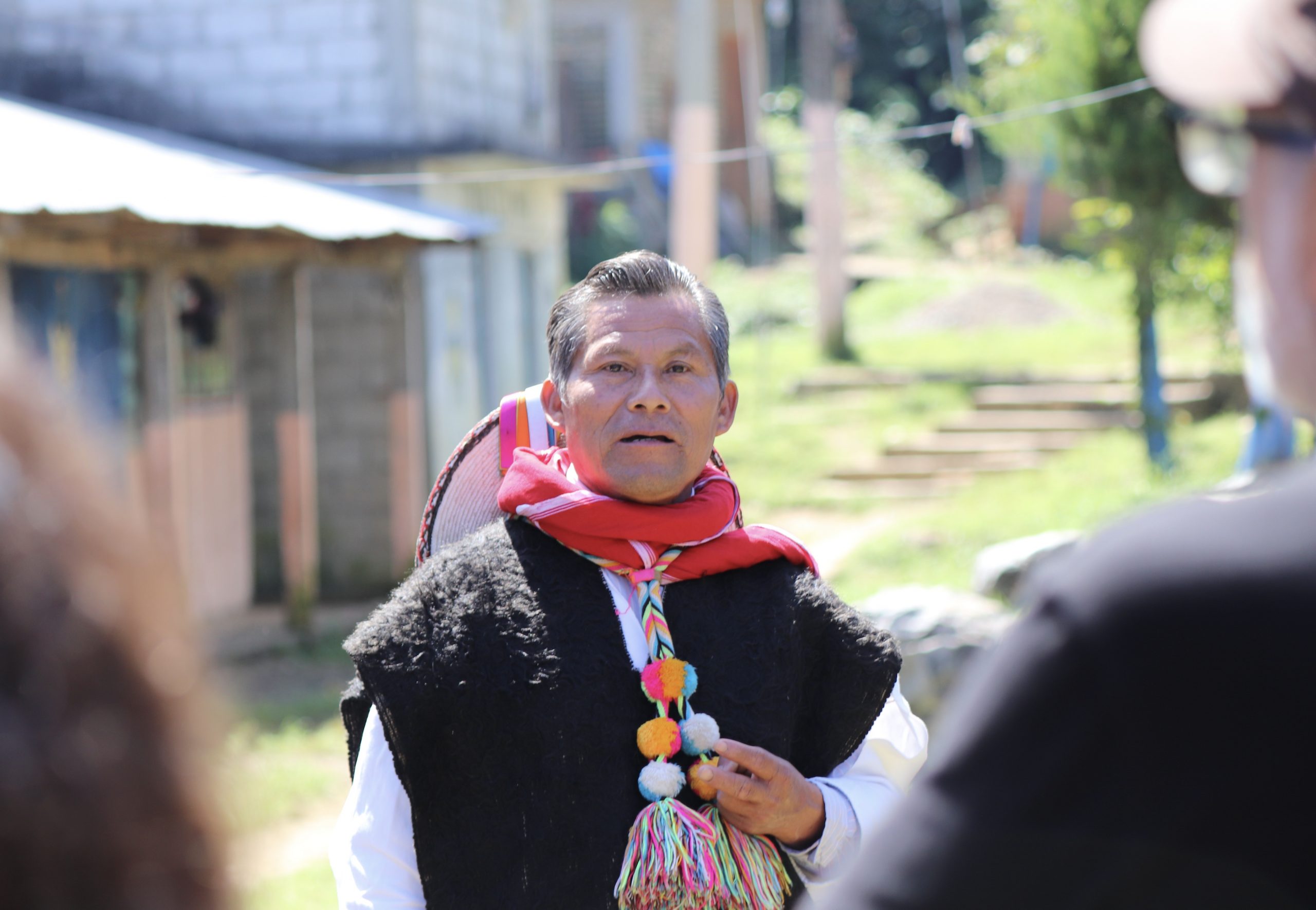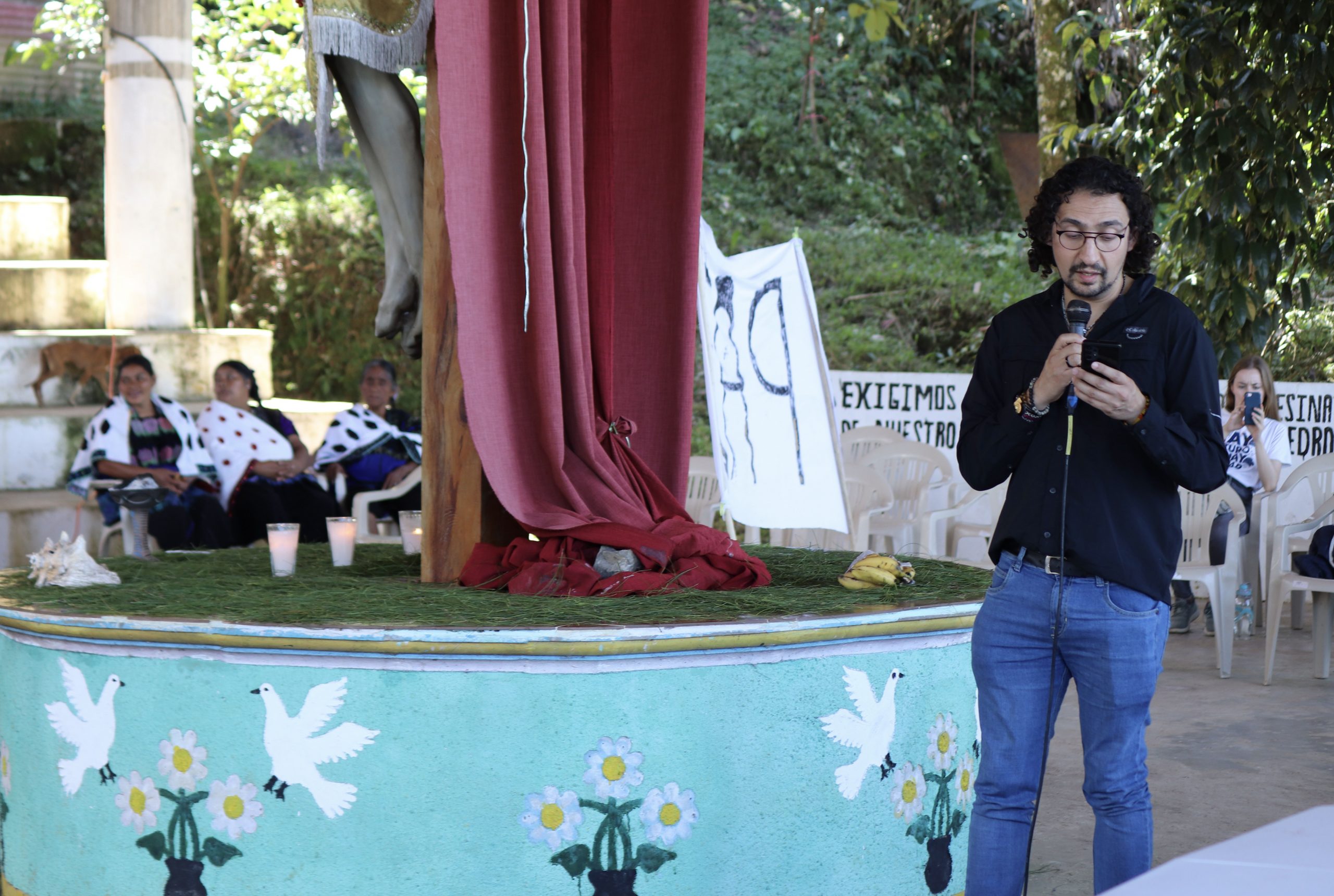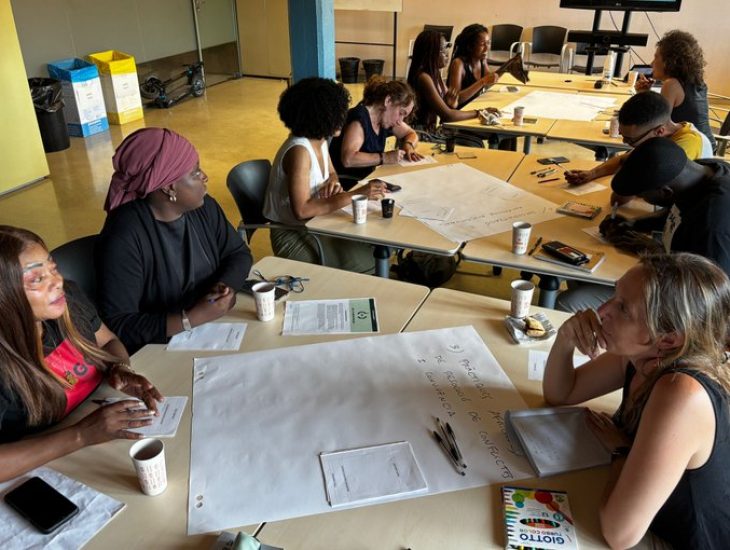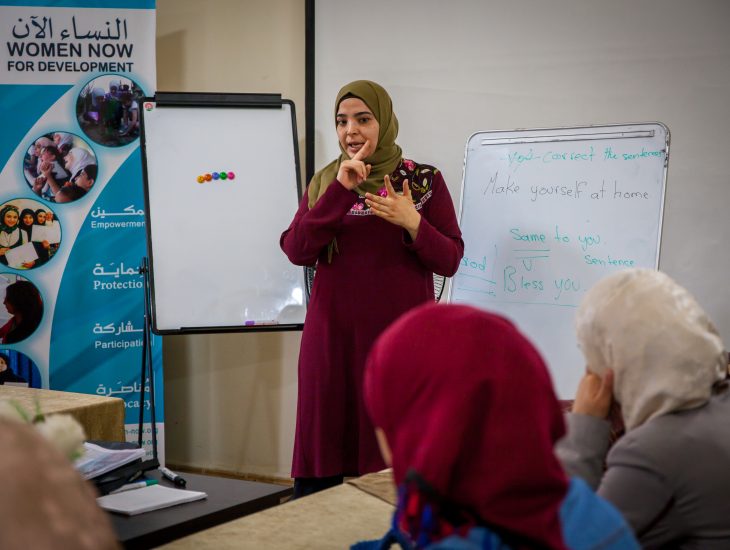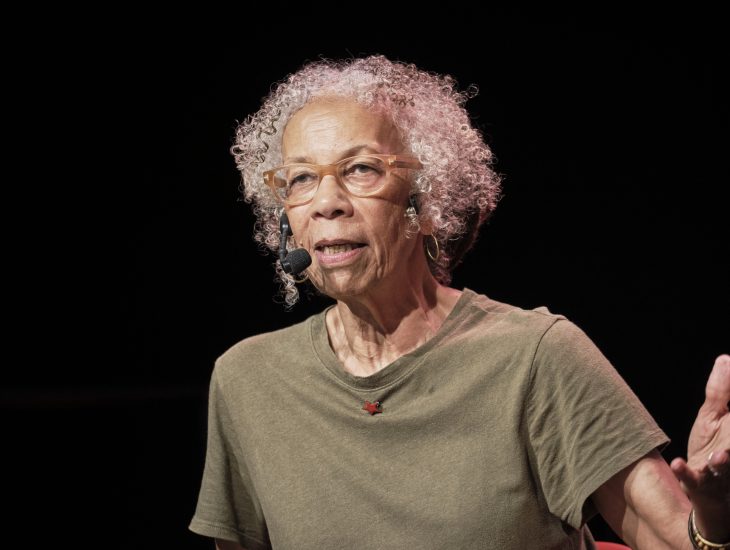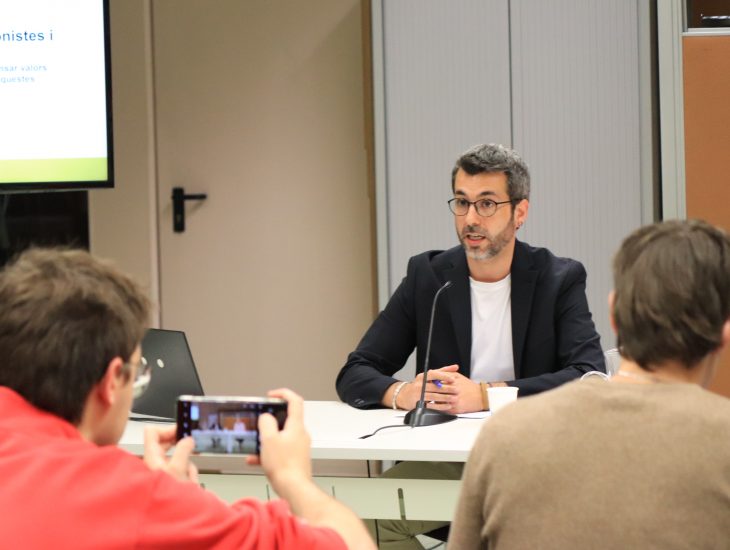After two years of work and virtual meetings, the Platform for Peacebuilding in Mexico, of which ICIP is one of the promoters, met for the first time this week in San Cristóbal de las Casas, Chiapas.
The Platform is a space for dialogue and synergy that brings together people and organizations linked to the Global Partnership for the Prevention of Armed Conflict (GPPAC), the Civil Service for Peace of Pan para el Mundo and the First International Forum for Peacebuilding in Mexico. This forum was held in Barcelona in 2019 and organized by ICIP, Serapaz and Taula per Mèxic.
During this process, other organizations joined the group and participated in various activities in Chiapas. These include Aluna, CCC México, Consorcio Oaxaca, Coreco A.C., Energía y Estrategia, Centro de Derechos Humanos Fray Bartolomé de las Casas, Serpaj México, Sipaz, SweFOR, Taula per Mèxic and the Whitaker Peace and Development Initiative. They all form part of this Platform, which also brings together activists, journalists, artists and academics committed to transforming violence in Mexico through a peacebuilding approach.
From 25-28 October, the Platform organized an international forum and an Indigenous peoples’ meeting and held several other meetings to discuss the present and future of the organization. A visit was also made to Acteal, a community in Chenalhó, Chiapas, with great symbolic significance. On 22 December 1997, paramilitary groups, allegedly acting in collusion with the State, killed 45 Indigenous Tzotzil people, including four pregnant women and 18 minors. It was at the House of Memory and Hope in Acteal where a statement announcing the formal constitution of the Platform was read.
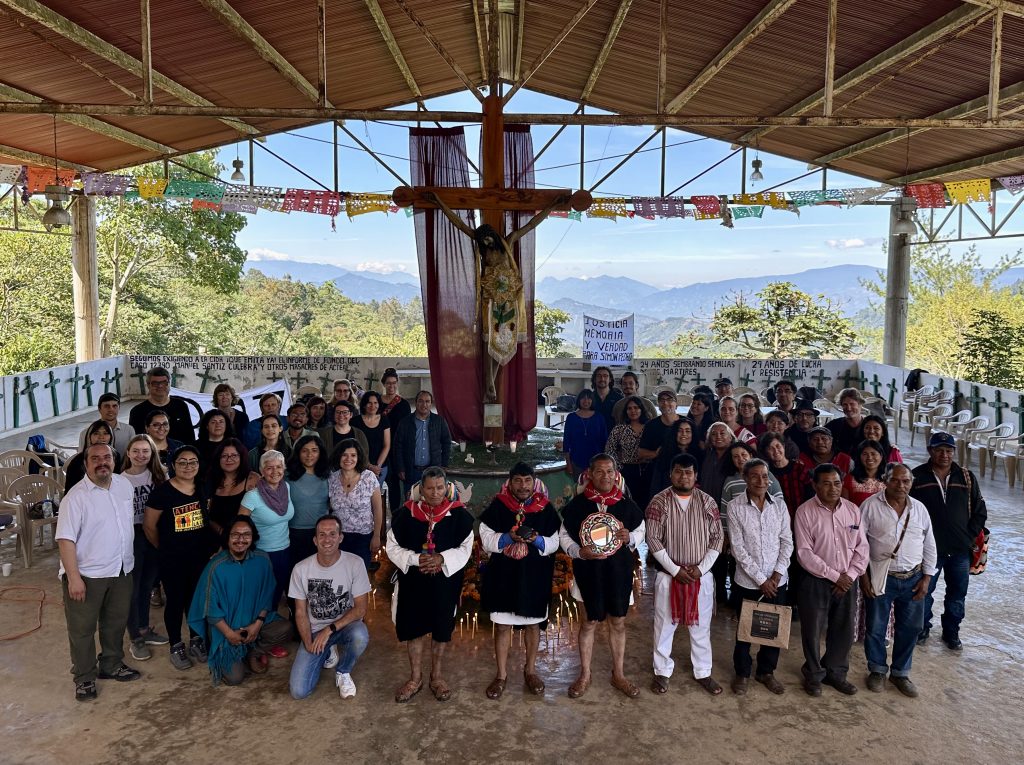
A forum as the first public event
The Platform’s first public event was the International Forum for Peacebuilding in Mexico, held at the Daniel Zebadúa Theater in San Cristóbal de las Casas on 25 October. The objective was to reflect on and analyze the challenges posed by the current violent situations in Mexico’s various territories.
More than 500 people attended the Forum, organized around four panels. The aim of the opening panel, “Keys to building peace: a global reflection”, was to discuss the strategic frameworks for peacebuilding that have been promoted in other places, including needs and obstacles. Adolfo Pérez Esquivel, Nobel Peace Prize winner; Marta Ruiz, former commissioner of the Truth Commission of Colombia; and Luis Jorge Garay, academic and international consultant, shared their reflections.
The second panel, entitled “Security, justice and territory” was based on the question “How can we end violence?” especially in the context of a crisis of human rights and insecurity in Mexico, to identify the various actors that perpetrate violence from a territorial standpoint. This panel was led by Jenny Pearce, of the London School of Economics, in the United Kingdom; Guillermo Trejo, of the University of Notre Dame, in the United States; and Francisco Huaroco Tomás, of the Indigenous community of Cherán. The session was moderated by Yésica Sánchez Maya, of the Consorcio para el Diálogo Parlamentario y la Equidad, A.C.
The third panel, entitled “Restorative practices, dialogue and reconstruction of the social fabric” was presented by Gloria Abarca, an expert in Education for Peace, and featured the participation of Lenin Torres, of the Center for Research and Social Action (CIAS Por la Paz), Lina Ibáñez, of Diálogos Improbables (Colombia), and Abel Barrera of the Centro de Derechos Humanos de la Montaña Tlachinollan.
Finally, the fourth panel, entitled “The cultural and spiritual dimension of peacebuilding” featured the participation of academic and social activist Pietro Ameglio, journalist and member of Quinto Elemento Lab, Marcela Turati, and the Bishop of the Diocese of San Cristóbal de las Casas, Mons. Rodrigo Aguilar. The session was moderated by Carla Ríos, of the Brigada Marabunta. In this panel, participants exchanged points of view and experiences on how education, spirituality, art, culture and journalism are crucial elements for transforming the mechanisms that justify and support the perpetration of violence in society.
The panels’ content and conclusions are available through this link.
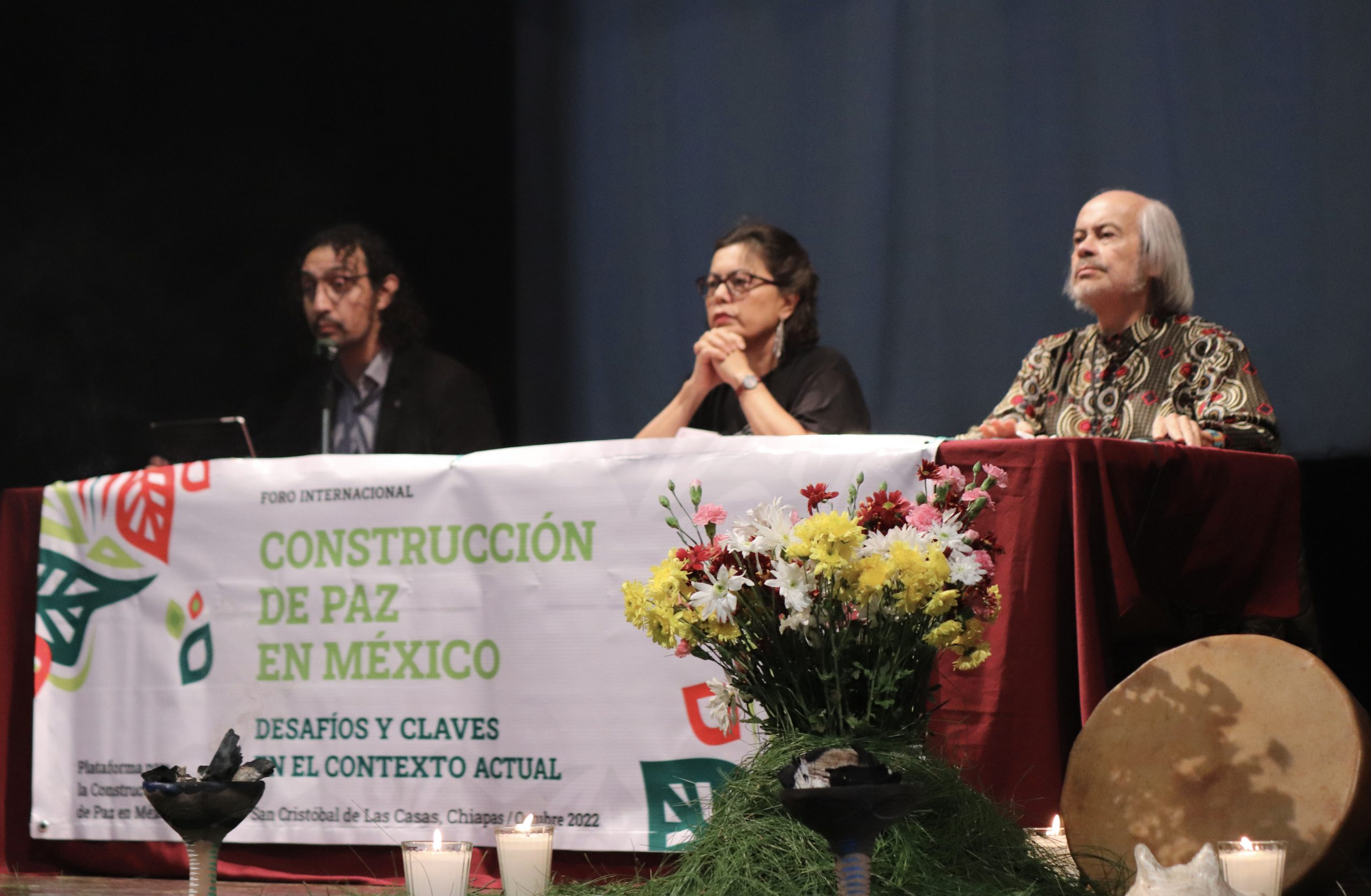
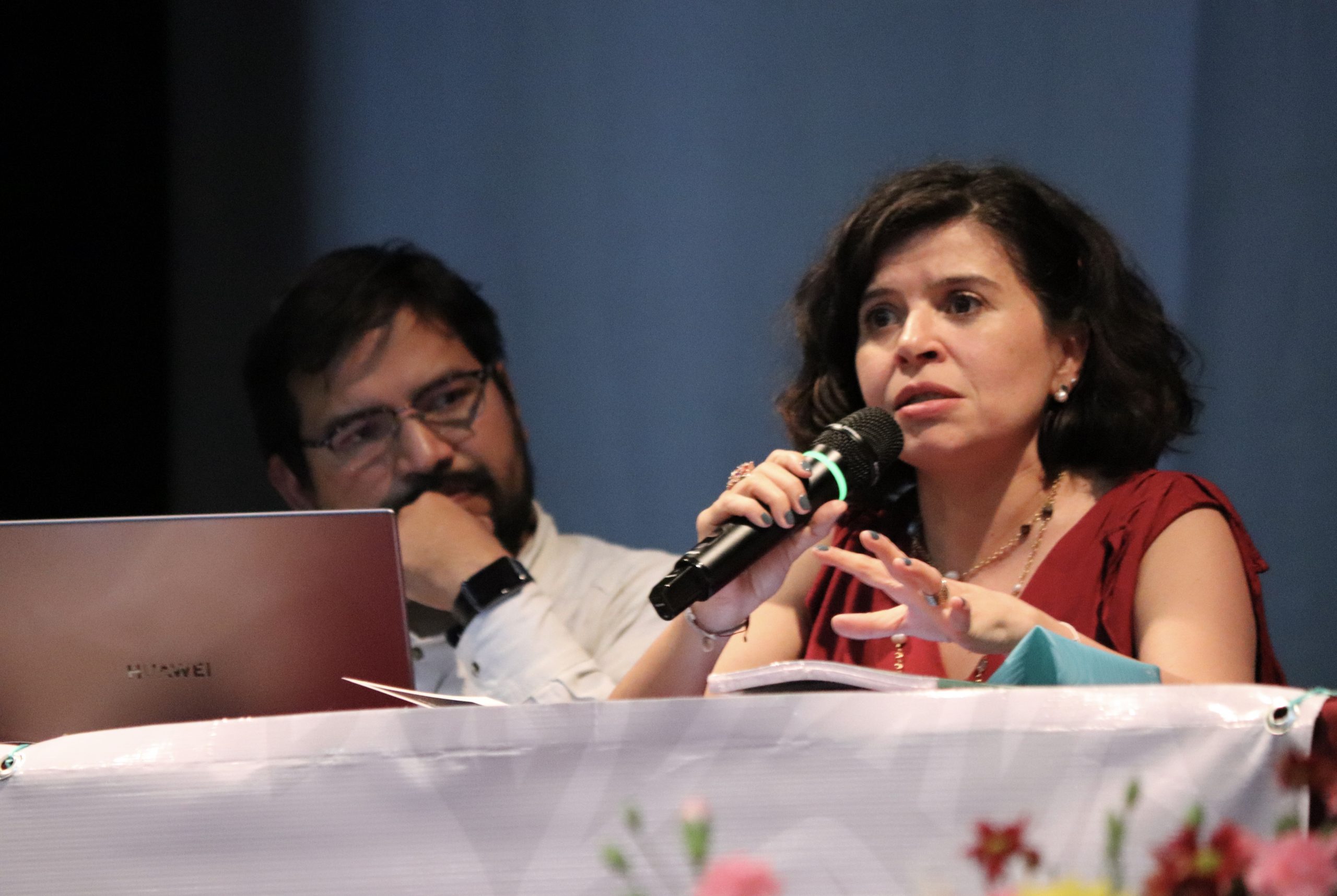
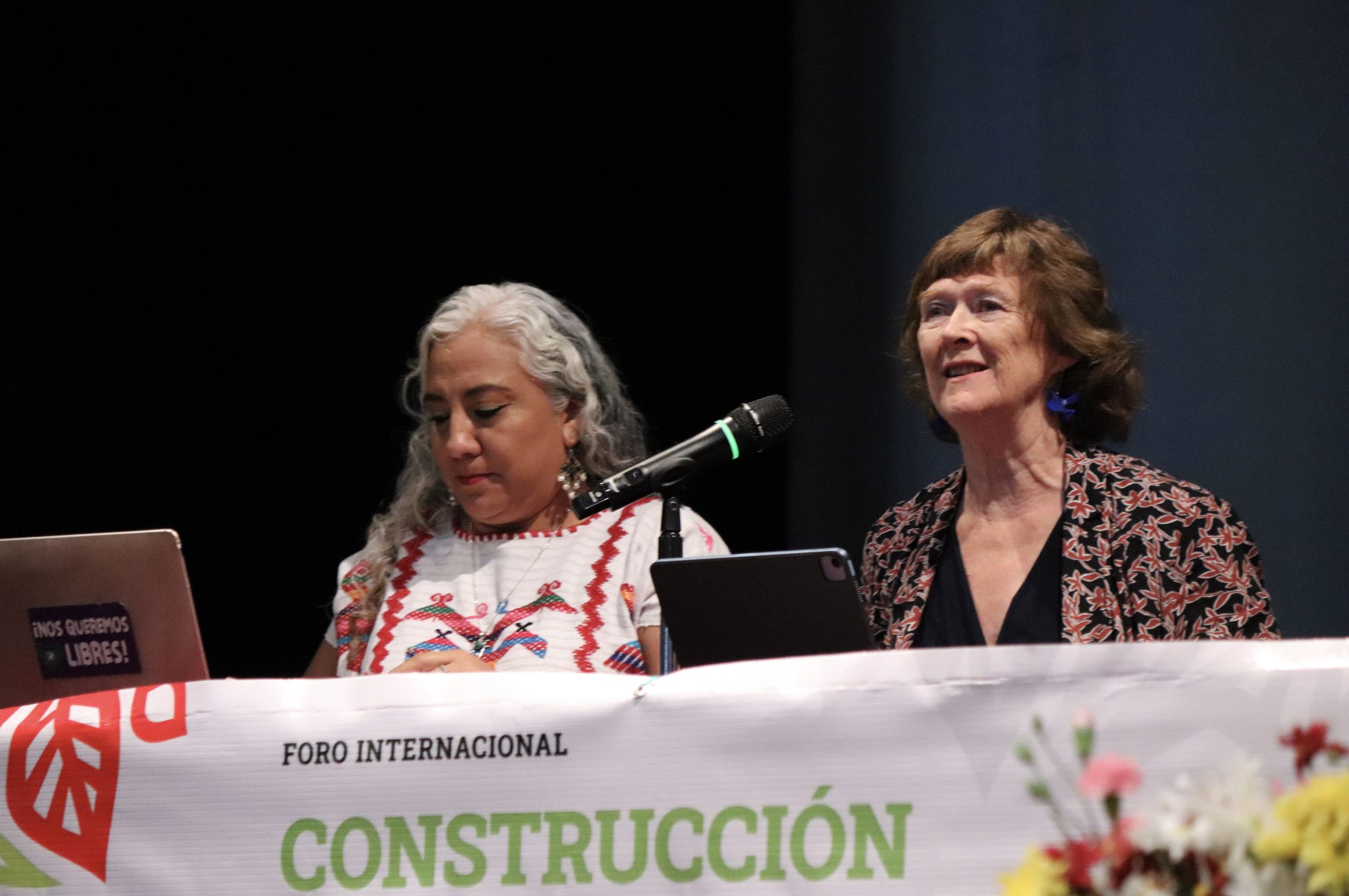
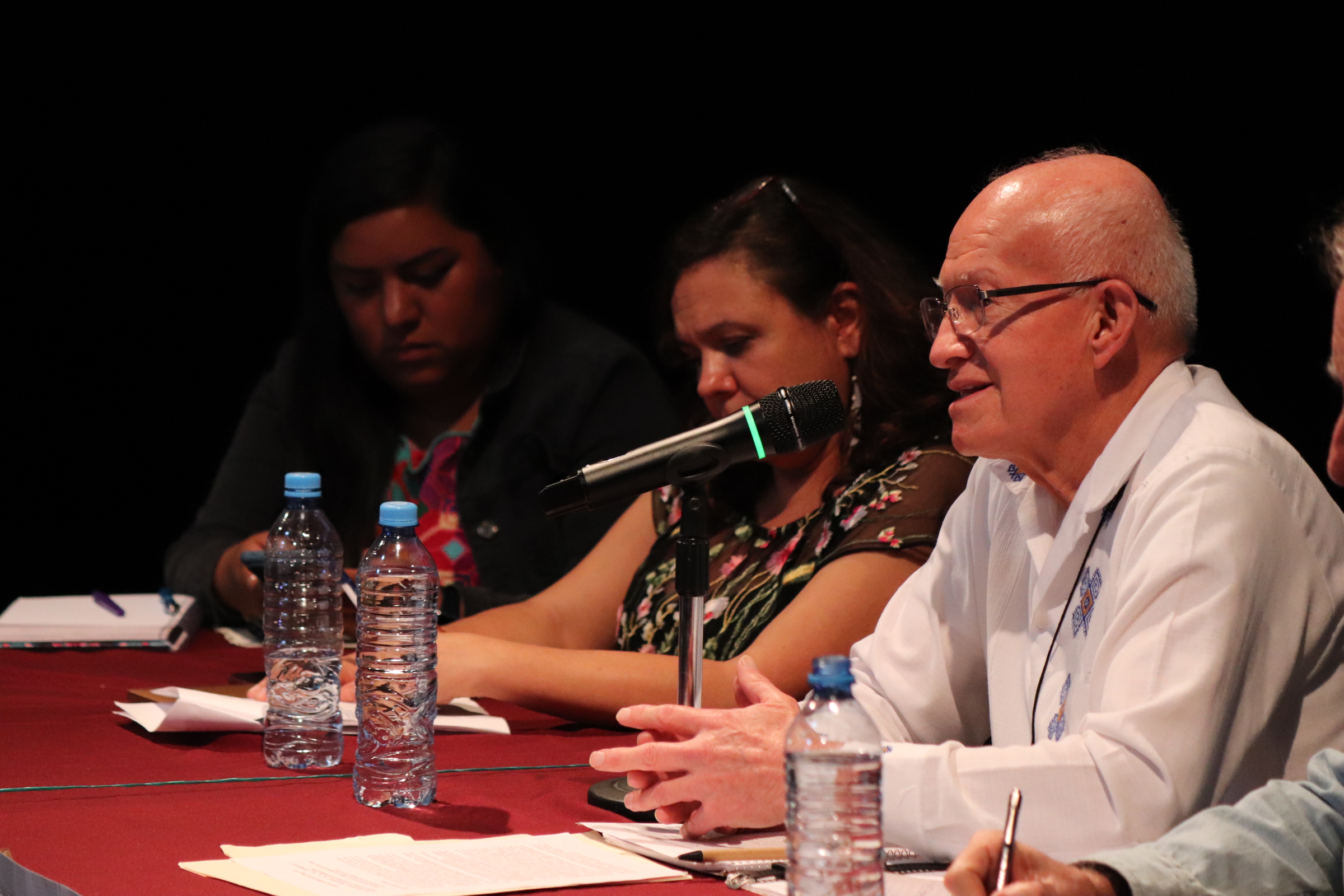
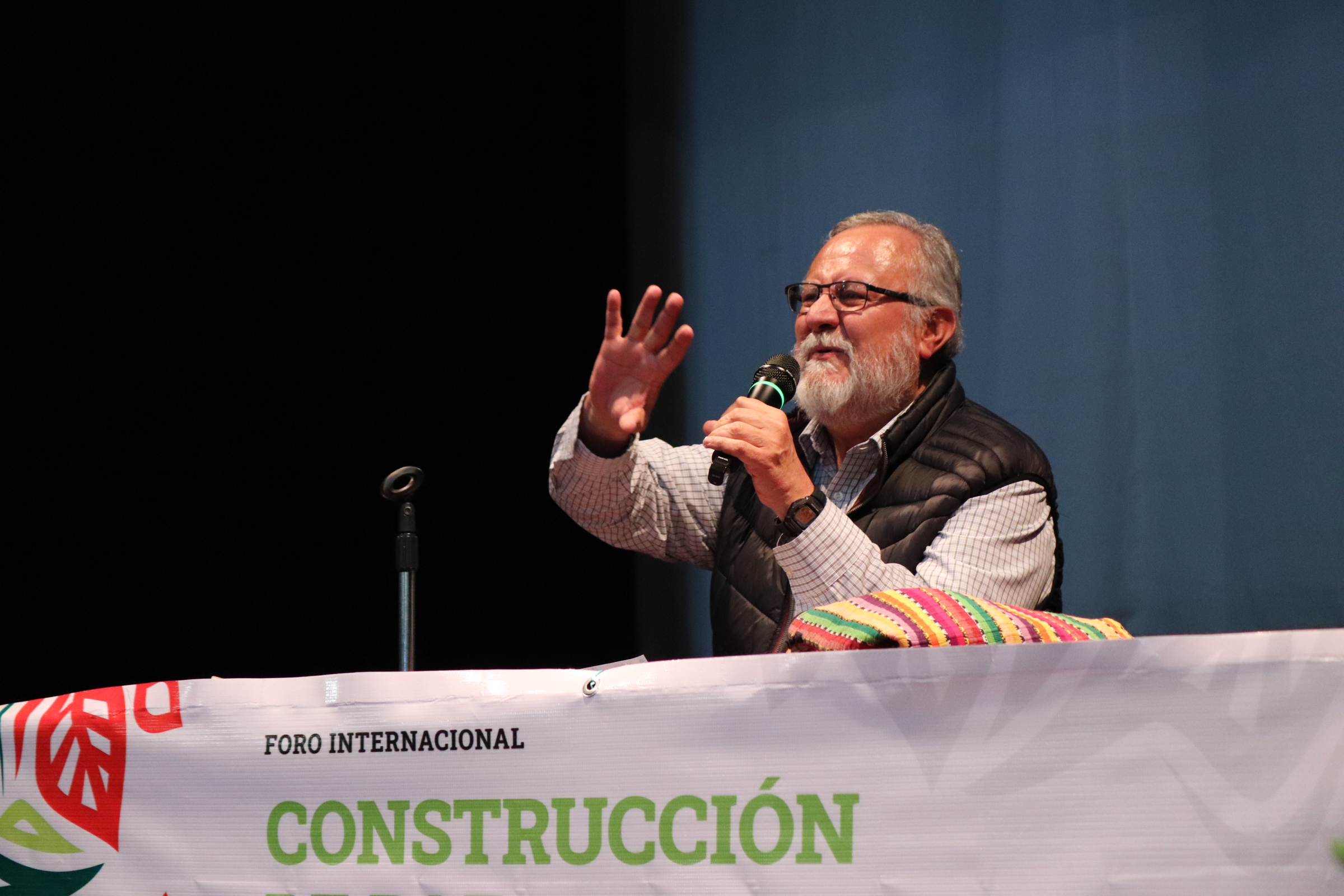
An Indigenous people’s meeting on the second day
The event entitled Tejiendo la palabra, dialogando entre pueblos, jointly organized by the Slamalil K’inai Platform for Peacebuilding in Chiapas, took place on Wednesday, 26 October, following the Forum.
More than 200 people from various Indigenous communities in several Mexican states participated in this conference, which took place at the Diocesan House in San Cristóbal de las Casas.
During the day, participants analyzed the reality of Chiapas and other Mexican states in six panels (Community protection and security; Reconstruction of the social fabric and peacebuilding; Support for processes of victims; Youth; Women; and Economic alternatives, land and territory, autonomy and self-determination).
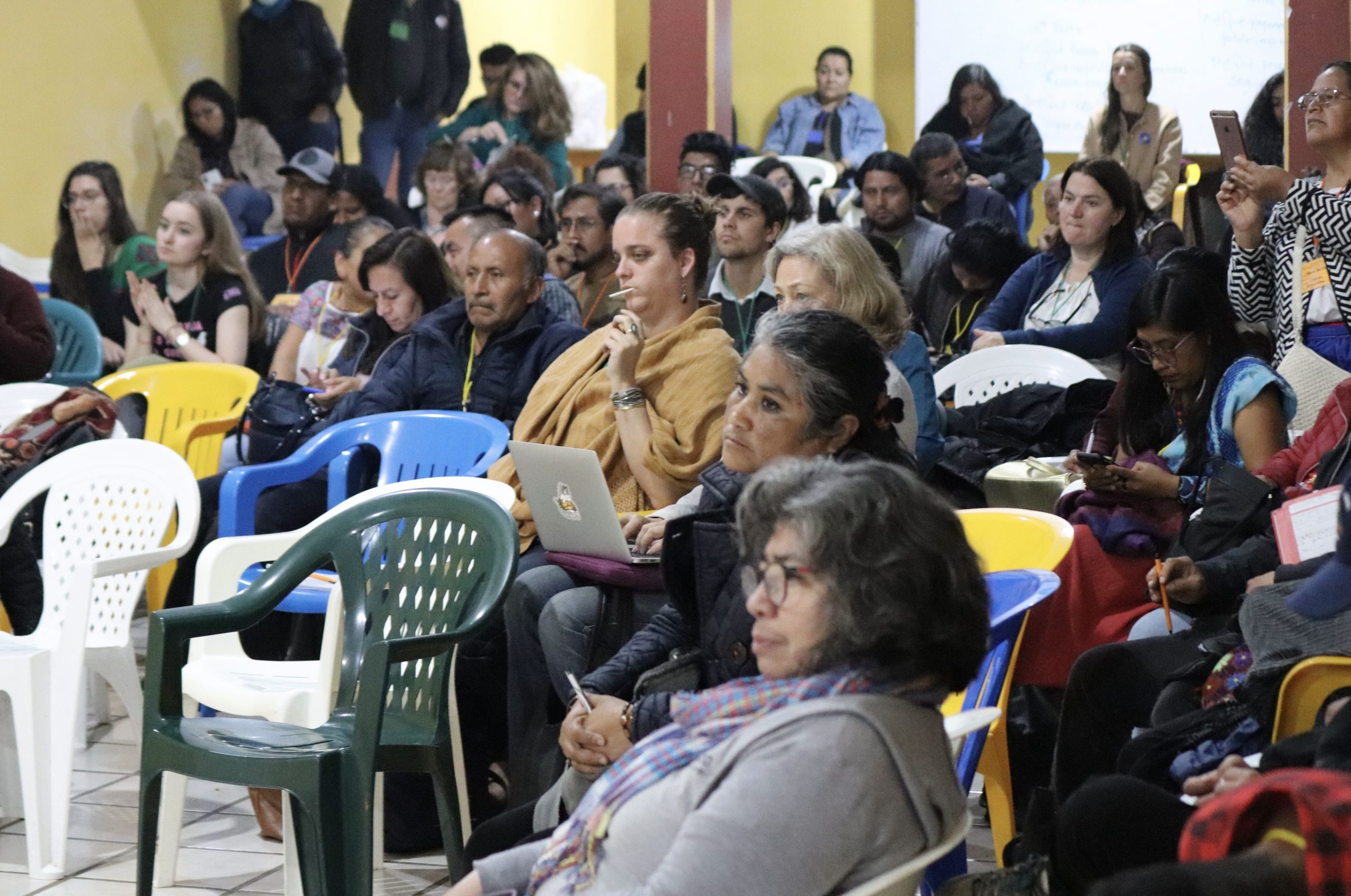
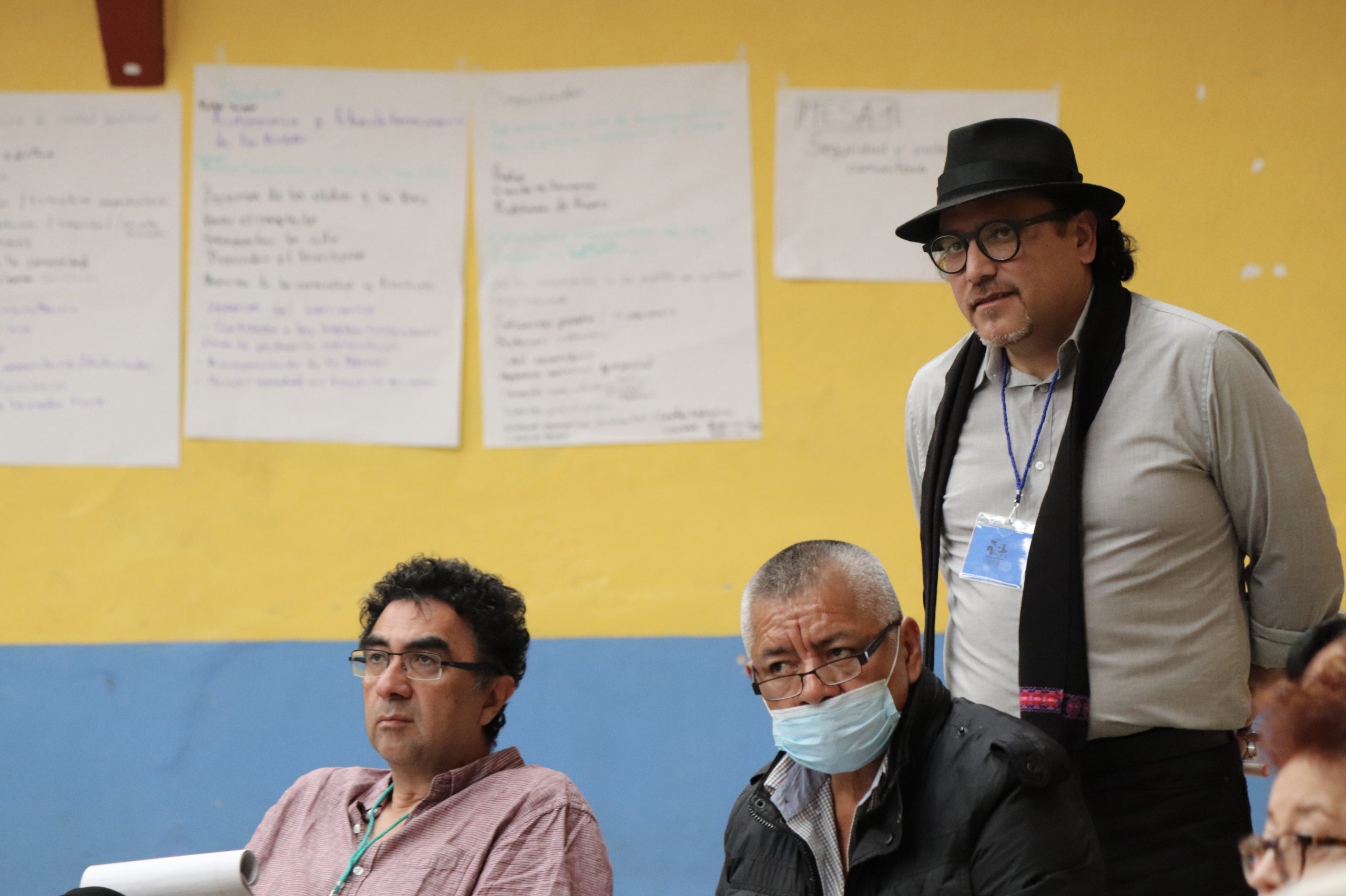
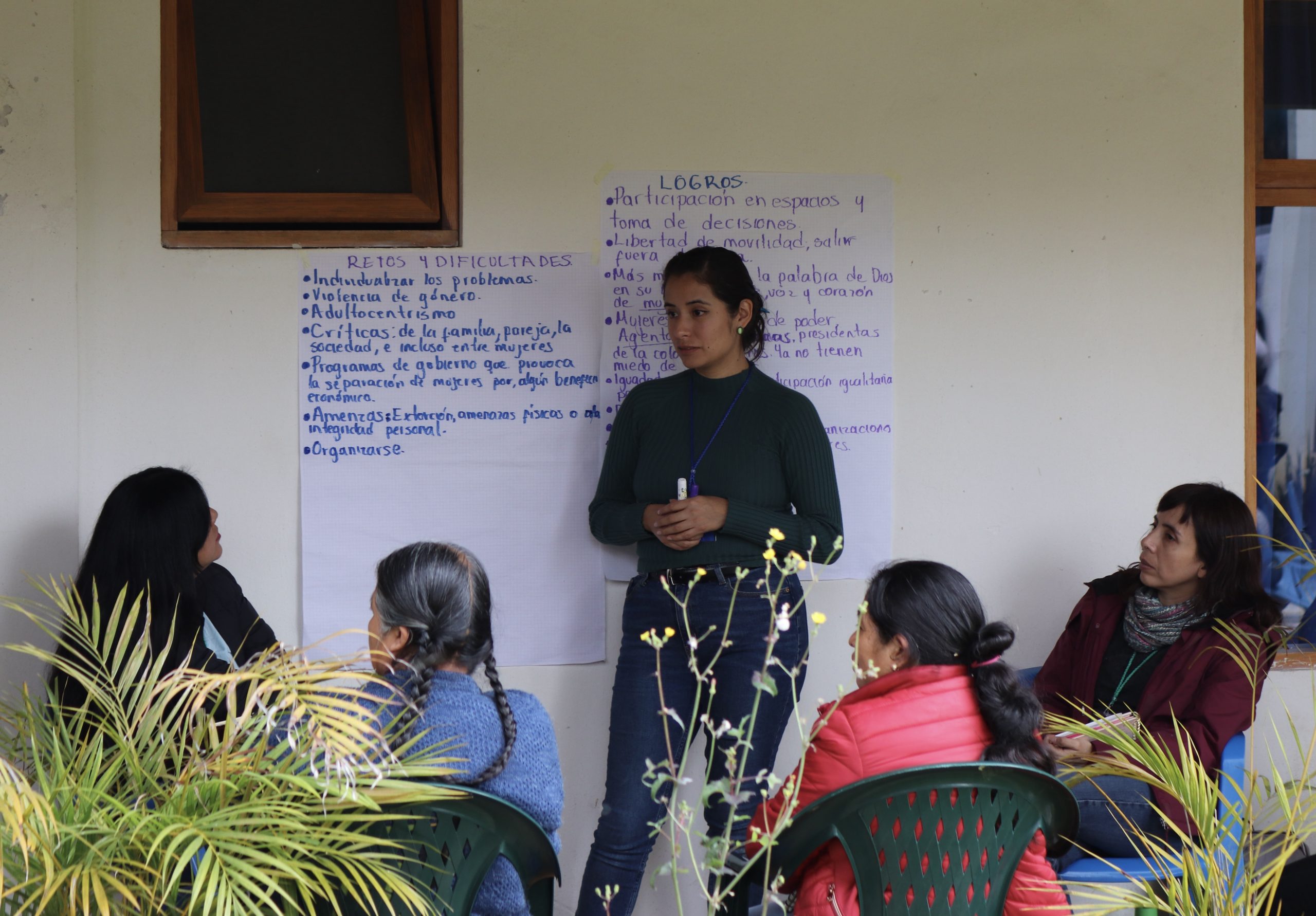
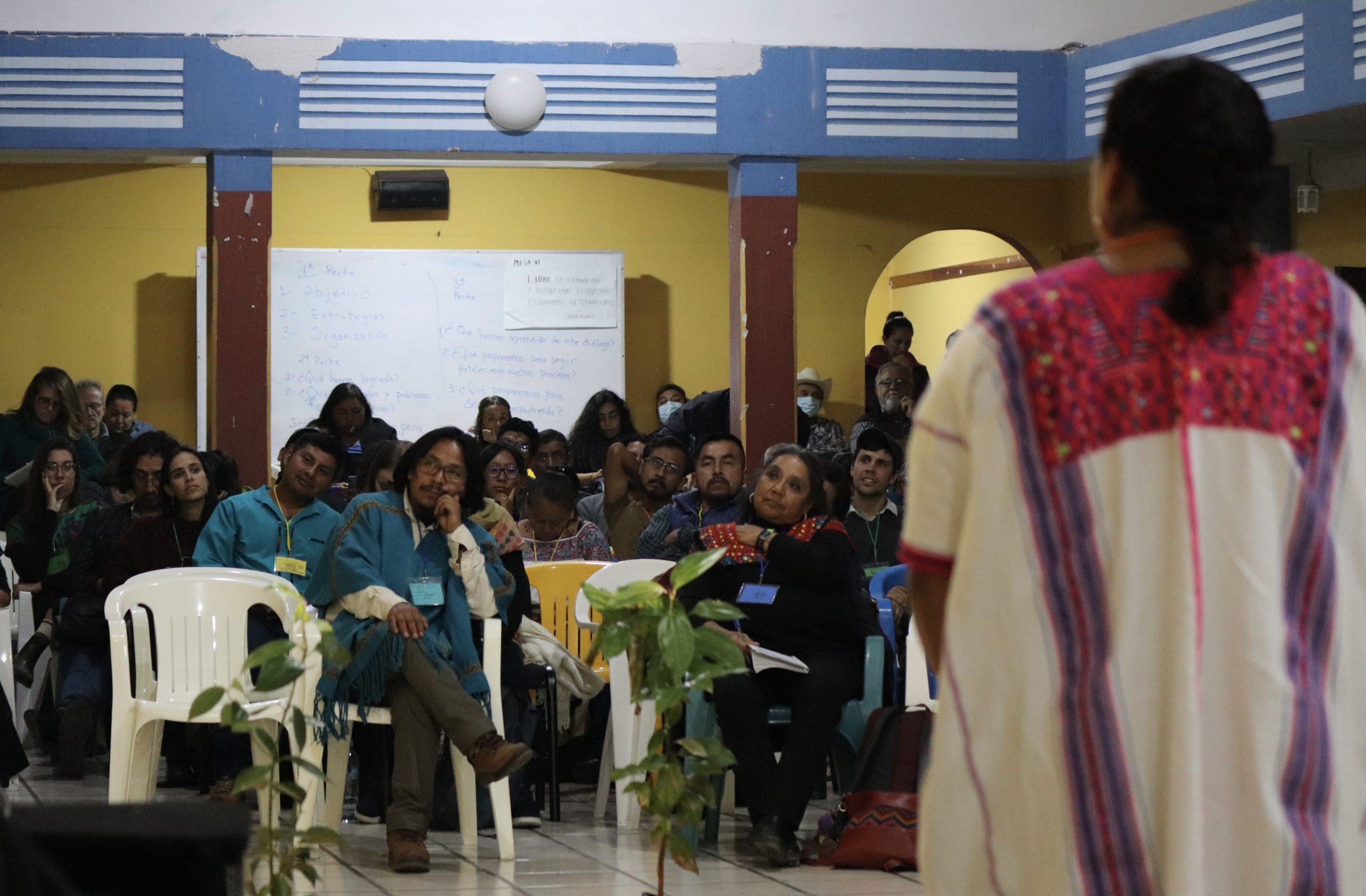
A working session and a visit to Acteal
On the third day, Thursday, 27 October, the Platform held a meeting featuring the participation of more than thirty people from its member organizations. This internal work session aimed to develop a shared vision in light of Mexico’s many challenges to peace and to provide the Platform with its own strategies and methodologies.
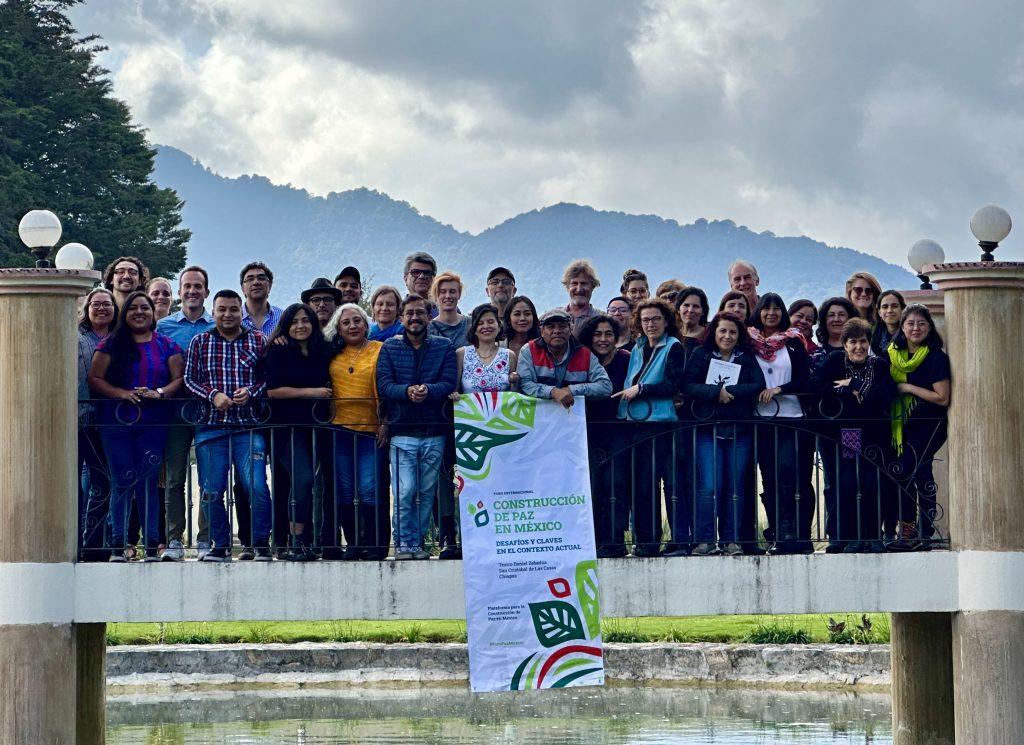
Finally, on Friday, 28 October, day four of the event, members of the Platform and participants in the Forum visited Acteal. This coming December marks the 25th anniversary of the massacre that turned this small community into an example of struggle, resistance and dignity of Indigenous peoples.
During the visit, the Platform members held a symbolic ceremony to introduce the group, and a statement was read announcing its establishment and its main objectives.
In the coming months, the Platform intends to continue working “to promote the transformation of the structural and cultural conditions that generate the crisis of armed violence in Mexico,” according to the statement. Therefore, promoting an inclusive, just, transformative and lasting peace is essential. “In other words, to fulfil all the conditions that allow everyone to lead a dignified life.”
